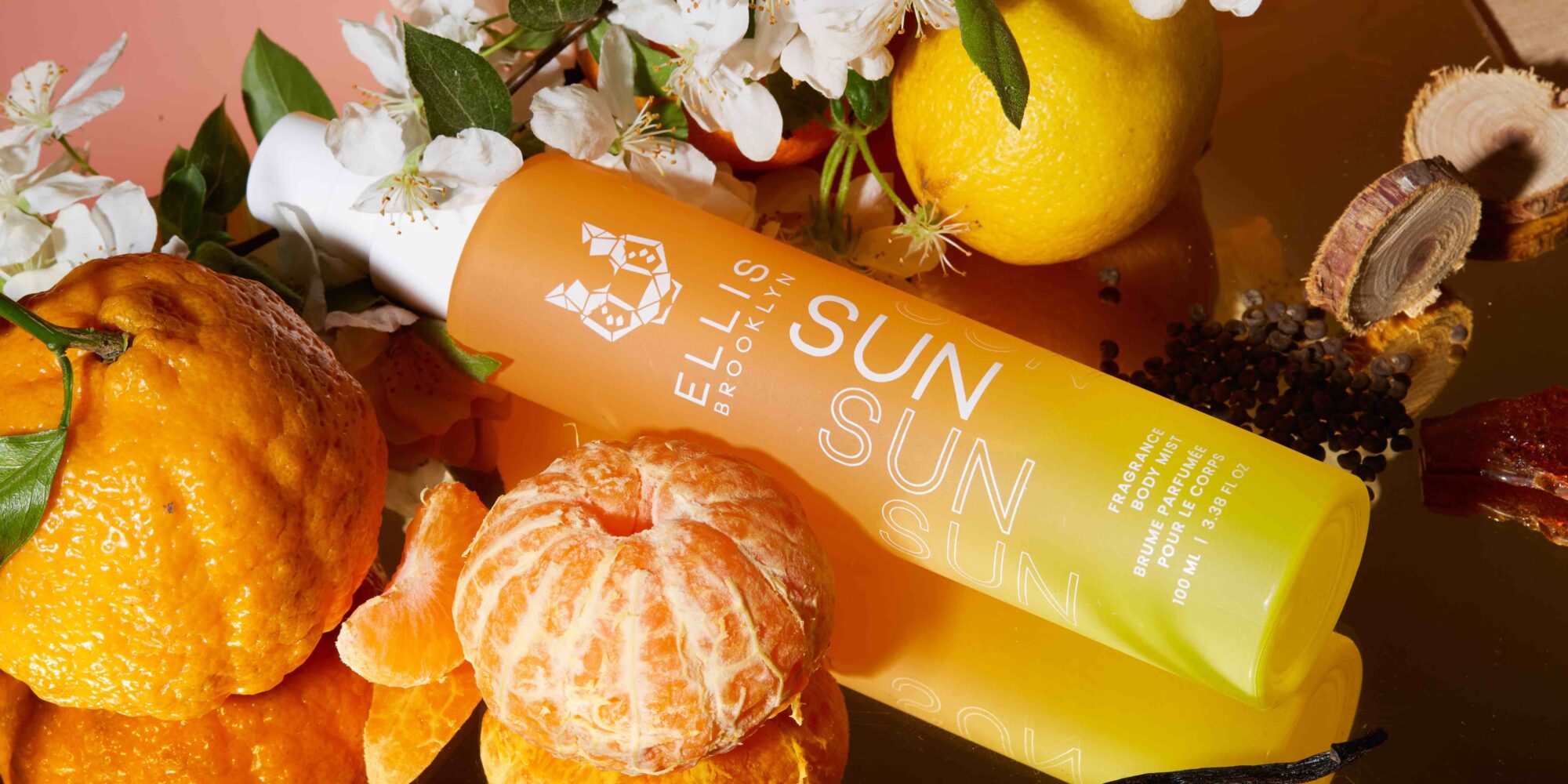
Ellis Brooklyn’s Bee Shapiro On The Body Mist Boom, Why She Doesn’t Do Blotter Scents, And Series A Fundraising
In the fragrance category, consumers increasingly don’t want to be categorized. “I grew up in the era where I was instructed what to do. I should smell like this, I should wear a scent like this, I should find my signature scent until the end of days,” says Bee Shapiro, founder of Ellis Brooklyn, beauty columnist for The New York Times and author of “Skin Deep: Women on Skin Care, Makeup, and Looking Their Best.” “I think you can still do that, but there’s all these other things you can do now. You can layer, you can have a collection, you can spray down your clothes.”
Ellis Brooklyn is giving consumers the freedom to experiment with scents through an assortment that’s expanding beyond conventional fragrance formats. While the brand’s around 13 eau de parfums, including bestsellers Myth, Salt and Sun Fruit, generate 85% of its sales, it offers body milks, body oils, skincare, which launched last year with Satisfying Skin Caring Moisturizer, and, most recently, body mists. Ellis Brooklyn is available at Sephora, Bluemercury, Credo, Anthropologie, Ulta Beauty, Dermstore and Shen Beauty.
On May 23, the brand rolled out two body mists—Sand and Sea—and a third, Sun, joined its lineup last week. At $45 each, the body mists allow consumers to enter Ellis Brooklyn more affordably than its $108 eau de parfums. So far, sales of the refreshing sprays have exceeded expectations by 350%. Across its selection, Ellis Brooklyn told publication Women’s Wear Daily last year that it’s on track to hit between $30 million and $40 million in 2024 sales. In 2020, it raised $1 million from Stage 1 Financial and Toni Ko, founder of NYX Cosmetics and Bespoke Beauty Brands.
Beauty Independent caught up with Shapiro to discuss the body mist boom, fragrance ingredient transparency, Ellis Brooklyn’s series A funding round, the maturation of the brand’s product releases, what’s in store for the fragrance segment, and why she avoids developing blotter scents.
When did you start thinking about launching body mists?
I actually started thinking about body mist during COVID and ran it past my retailers. They were like, “Body mist is a whole different category. You’re a perfume brand, are you sure you want to do it?” And some of our retailers were like, “Oh, you should do body mists in your existing scents.” I really felt uncomfortable with that because it’s totally different when you’re making an eau de parfum versus a body mist.
When you’re creating an eau de parfum, I love complexity, so I never think about dialing it back. It’s almost like simplifying a fragrance formula when you’re doing a body mist. I didn’t want to go backwards into an existing eau de parfum and do that to it. I kept pitching this idea that I wanted to do a totally different body mist category, and it finally came to fruition last year. So, I’d been working on it for about a year, year and a half when it finally got the green light.
Body mists have a lower scent concentration, so if you spray on a lot and you don’t hundred percent love it, it will fade. It’s not overwhelming at all. Frankly, it was really just a joy to use and that was the whole idea of it. I’ve been really, really obsessed with the idea of fragrance being self-pleasure.
The collection is Sun, Sea and Sun. Sun is capturing this moment in the sun. Sand has this textural quality that’s also really warm and references warm sand when you’re sitting on the beach. Then, Sea has that aquatic quality, but I didn’t want it to be so literal that it literally smelled like an aquatic. So, it has aquatic watery qualities, but it also has citrus and florals in there.
A lot of brands are coming out with body mists at the moment. Why do you think that is, and how are you taking a unique approach to body mist?
When brands start to move together or you start to see a trend, it is a reflection of what we’re interested in as a society. For me, body mist was really coming out that COVID era of, OK, let’s let loose and not take everything so seriously. And beauty doesn’t have to be, even in fine fragrance, a really, really explained thing. Body mist is so easy to understand.
I really wanted to take a category I loved as a teenager to modern day. I love glass packaging. It’s a no-brainer as far as recyclability, but also you can reuse it. In our ethos, we try to reduce as much plastic as possible. Almost all body mists that I know of come in plastic. So, that was number one. Then, two, I wanted it to feel luxurious. I think these little daily luxuries are really valuable, and I wanted the scent to feel more European, more elevated and to still have that joy and ease of use, but just offer a different sort of scent profile, a little bit more grown up.
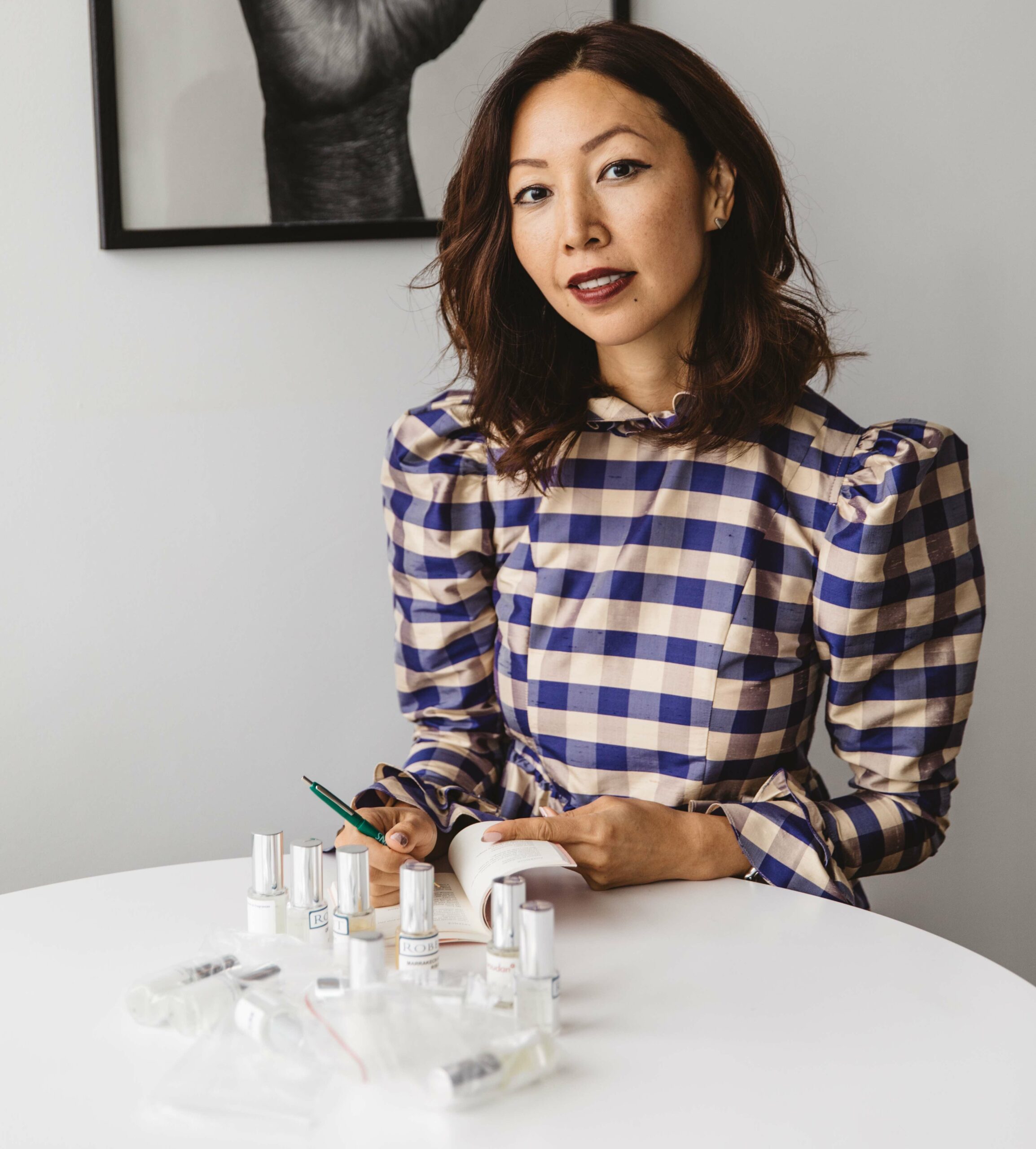
Is how you do product launches today different than when you started?
Oh yeah. I started from the editor side, and I often got lab samples. I was so obsessed with the actual product and I still am. That part has not gone away, but what I have learned through the years is that it all matters. The packaging, the box, the story you tell and the scent matters. I’ve gotten so much better at pulling it all together. If you think about it, even from a writer’s perspective, you need to tell your story well and all those elements put together tell your story well.
Before I was almost singularly focused on the actual scent itself and hoping that the scent would tell the story completely—and it just doesn’t. I think we love the tactile feel of a bottle or of a lovely mister or knowing that a brand has a recycled box. Those tidbits are really, really, really important. I’m not saying we didn’t pay attention to it before, but I realize they’re all just as important as having a beautiful fragrance is.
Is there something you’ve changed about the packaging or messaging that’s been impactful?
Our early bottles were clear with a label on it and in a black box. I started to realize that, especially in a crowded world of products, it’s so much more helpful to look at a product and have a sense of what it is. We are very visually oriented society. We also are living in a world where there’s just so much going on, and there’s pleasure in color as well and oftentimes, when we’re formulating fragrances, we also think about color.
Salt and Sweet were our first colored bottles. That was a big shift for us because before we were doing these clear bottles. Ever since Salt and Sweet launched, I’ve actually started putting so much more thought into, how does color convey scent? How does packaging convey scent?
How have your conversations with investors changed as attention has turned more toward the fragrance category?
We have not raised very much over the life of our brand. In beauty these days, especially if you are at the larger retailers like Sephora and Ulta, it’s tough not to raise a lot because you invest a lot in sampling, store exposure, store teams, etc. I intentionally bootstrapped this company in the beginning. One thing about bootstrapping is it’s completely scary, but you are forced to make different choices and grow up in a way that that’s a little bit different.
You’re more tested. You have to make decisions that are a little bit more business savvy in the sense that you don’t have all this cash flow. We do have a formal board now. We’re raising a series A. There is a lot more interest in the category, but I would say the U.S. investor still doesn’t know fragrance very well. So, we’ve been talking more to European investors. In the U.S., there’s been a lot of focus on makeup and skincare on the investing side, and there’s just less knowledge about fragrance.
Give us a little of your pitch to investors.
A lot of times when we look at fragrances, the packaging, the commentary, the marketing, it is really from a different era—and there is appeal in that. There’s appeal in craftsmanship, in history, but, as a personal wearer of fragrance, Ellis Brooklyn talks to the person today, and I can’t say when I go out and shop all these other fragrance brands that these other iconic brands are doing that. And that’s very important to me.
Fragrance is an interesting category in that it’s not a necessity, but it is absolutely a pleasure. It can completely change your day. And I think not being current as far as a brand and messaging in scent is a huge miss.
What are growth opportunities for Ellis Brooklyn?
We are very under-distributed internationally. We have primarily focused on the U.S. We are also in Australia with Mecca, an amazing partner for us. Other than that, we just launched in the UK at Space NK, Liberty and Harvey Nichols. We are really just dipping our toes in the sand in these foreign countries.
Fragrance is different from skincare and makeup in that a huge percentage of the business is not in the U.S. So, there’s still a lot to be gained. If I was a makeup brand, my focus probably would be first U.S., then the rest of the world, but it just happens to be we are a U.S.-based fragrance brand, and we’ve been focusing on the local market.
What do you draw from recent deals? There’s been big ones like Aesop and Byredo, but smaller ones, too, like Skylar.
As a brand founder, it’s like, “Oh my gosh, why did this company get sold? Why didn’t mine get approached?” It’s very easy to get carried away. I think it’s much better to look at deals and be like, “What is there to take away that’s valuable?”
The Aesop deal was not an indie sale. That was Natura selling Aesop, which is a fantastically successful, beautiful, stunning brand, at a premium because of what they have built. I can’t really compare Aesop to myself because Aesop has been around for almost 40 years. The really, really invested time and energy into it. In Australia, I went to three different Aesop stores, and I marveled how thorough they are in the branding.
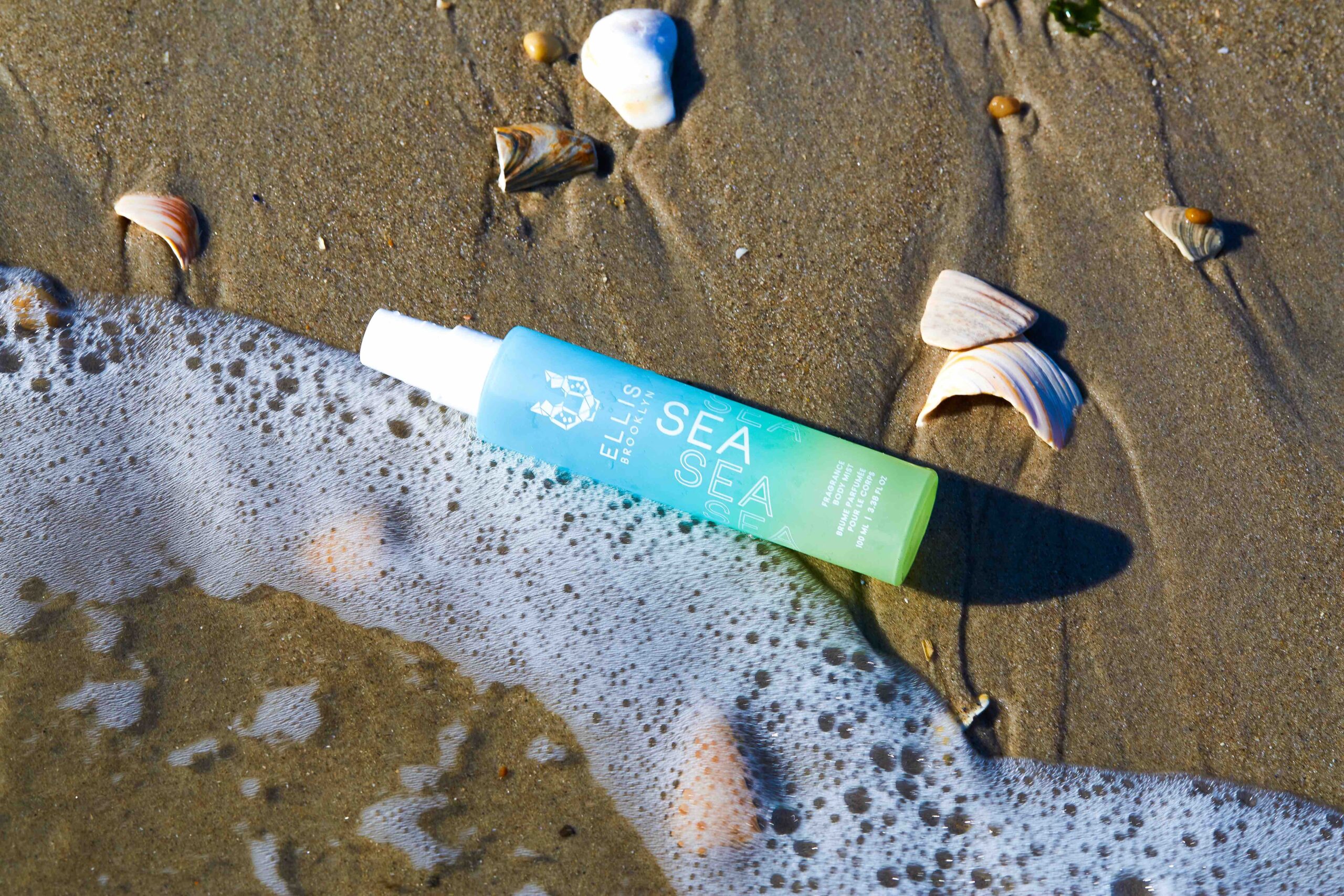
As you seek series A funding, are there any no-go terms of the deal for you?
What I’ve learned is that a lot of times companies are raising cash because they really need it, and they’re going to go out of business. It’s just the nature of a high-growth industry and that’s totally OK. That is not us. We are high growth, but we’re not going to run out of money.
We are looking for the right partner. By that, I mean somebody that understands what actual brand building is. I think sometimes in the investor world there is this growth-at-all-costs [mentality], and that’s just not us. I think also, because we are at this intersection of prestige and luxury, and it’s really important for us to have an investor who understands that.
Where does ingredient transparency stand? Do consumers care about ingredient transparency in fragrance?
Transparency is a really tough one because, if you really get into the nitty-gritty of breaking down fragrance, it can get very chemical-oriented in the sense that it’s just straight up chemistry. Even a natural ingredient would be listed as a chemical ingredient because it’s just the way fragrances are put together.
Maybe five or six years ago we required that we have a transparent ingredient listing for all of fragrances that we create. We have not necessarily published them only because it’s not user-friendly yet. We’re still waiting on a system from our retailers, but also just communication standards on what is best. It is not just like putting shea butter or putting a silicone. It is quite complicated.
The EU is the furthest along as far as ingredient safety. I actually would love if the U.S. had more, but right now we rely mostly on the EU. We are a globally compliant brand, so we not only look at the EU, but all the other jurisdictions.
From our end, creating wise, it’s gotten significantly better. When I first started, I couldn’t even approach a fragrance house with this idea of transparency. Now we can openly talk about it. I’m not sure consumers care about it. I think consumers care about a beautiful product and the company they believe in.
We’ve definitely communicated the benchmarks or the measuring of eco guidelines that we are doing on our end. We’re communicating that because it’s part of our brand ethos. If I was being truthful, I have no idea if that actually moves a sale.
It’s just who we are. And I don’t think I can make my judgment in brand creation or product creation based on if that matters. I don’t know if that makes sense or not, but we’ve decided as a brand, this is who we are and these are things we communicate. We’re not a big company who’s like, maybe we should make a clean fragrance and that’ll make people buy it. That’s not how we think.
There are a lot of fragrances in retailers under lock and key because of theft prevention. Do you have thoughts on the effect of that and what stores should be doing?
Every brand, not just us, has been impacted by theft, and definitely in fragrance where each product is pretty valuable in store. It is something that is concerning. It’s not just concerning for us, but also concerning for our retailer partners, and I’m sure many other fragrance brands. It’s something that I don’t know how much control we have over.
We are closely watching. We are also trying to figure out from a store perspective, how do we support our in-store teams the best? Is it going into store more because these testers are not as easily accessible? Is it going to toward more provided samples to customers in person? What does that mean? So, it is absolutely a top consideration of ours, but I think for us it’s less, “OK, how do we prevent that?” as it is, “How do we still get the testing of a fragrance in the right consumer’s hands?”
What do you see ahead for the fragrance category?
Fragrance, particularly in the U.S., will get more nuanced. I’m already seeing it happening. On TikTok, I love the community there because they talk about fragrance in a very educated way. I mean actually getting into the notes and actually knowing the perfumers. That’s really exciting because that is our point of difference. We really, really get in there. We are working closely with the perfumers. The quality of notes actually matters a lot.
When I first started Ellis Brooklyn, the communication was pretty straightforward. It was, OK, I used a rose. Very few people asked me about the type of rose or the quality of the rose. Where the rose comes from actually affects the quality of the scent.
There are other markets in the world where the consumer is so knowledgeable about fragrance, the Middle East, for example. Many of the consumers there can smell a single note and know what it is. They can smell the difference between why this cedar would cost more than that other cedar would. I could see the U.S. moving in that direction from the sheer enthusiasm about scents right now.
How do you think about product launches going forward? Can you build upon your presence in body mists?
We are working on potential body mist for next year. Nothing is finalized. Body mist launched right before Memorial Day weekend. It was a big gamble for us. We’re like, is this going to work? And it really has, and they’ve all also been really fun to create. We’re working with master perfumers like Honorine Blanc on our body mist, and it’s fun because you’re like, oh wait, this is not the same thing as an eau de parfum approach, it’s looser. It’s a little bit more like, I feel this vibe.
On the eau de parfum side, we are going to really go through our assortment, see what’s missing and develop from there. I think I’m getting better and better. In the beginning, I had this vision of what I personally wanted and now I’m approaching it from, yes, what I would personally wear, but, on top of that, where can we add? Where do we have a different voice to add to fragrance?
Are there things you know now about fragrance that would’ve surprised you before you founded Ellis Brooklyn?
I did not know about the idea of blotter scents, and maybe this is naive. When I first started Ellis Brooklyn, I was coming from the editor world. I only knew fragrance from one side, which is a finished product. One of my critiques early on was I don’t understand why fragrances when you first spray it on smells amazing, and four hours later it fades awfully.
One of the things that I’m obsessed with with Ellis Brooklyn scents is I want, even when a fragrance fades, to have it fade prettily. I don’t want that sour sort of old fragrance smell situation. Most fragrances that you have in the market today are what you call blotter scents. It smells amazing for the first 30 seconds you spray it on a blotter.
If you think about that, blotters are a piece of paper, it’s not even skin. Of course, you can be led astray when you select a scent in a department store, let’s say. And sometimes you wear it on skin, and it smells good for the one hour you’re walking around a shopping center, but then by the time you buy it, you take it home, you’re like, “Oh wait, it doesn’t fade nicely.” So, I didn’t know about this concept of blotter scent. I think maybe intuitively I was already trying to create a fragrance that wasn’t a blotter scent, but I didn’t know it was an institutional thing.
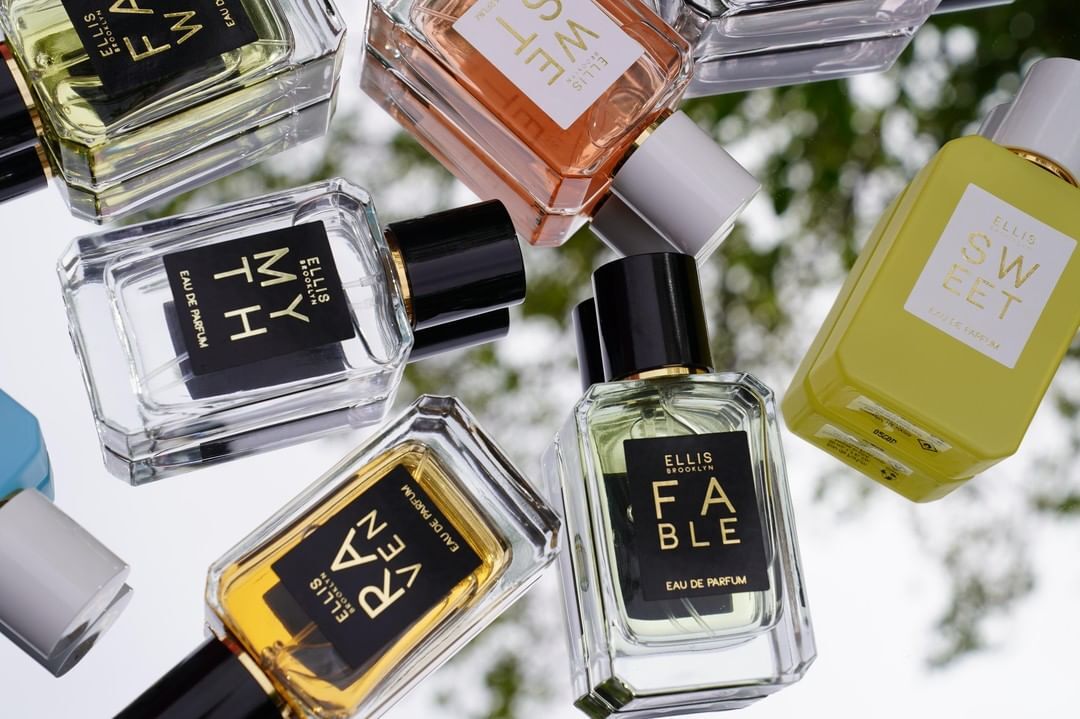
What can you do to make it non-blotter scent?
When you make a blotter scent, let’s say you have amazing lift, amazing carry, and amazing bouquet right off the bat, you are making a trade-off in formulation. Let’s say you overdose on these top notes, that may mean later on you had too much citrus upfront and your scent goes a little bit sour. But a lot of brands might make that exchange.
For me, I’d rather not make that exchange because the first 10 seconds, 30 seconds of fragrance is so short, and that’s not really how somebody wears fragrance. You spray it on, you’re wearing it for most of the day, and you might reapply in the afternoon. So, when you over-prioritize the opening notes because you’re trying to just capture somebody in two seconds in a store, you are making sacrifices at the end.
How does the non-blotter approach impact what you do?
It impacts our education. We are trying to tell our customers, “Spray on the fragrance, let the alcohol dissipate, and then give it a sniff. Then give it a sniff another hour in. Then give it a sniff in another three hours in. Be a little bit more methodical about testing the fragrance.”
The other thing about blotter scents is that they lift really well with alcohol because alcohol is still there, and you’re smelling it so soon, but that’s not really the scent completely, is it? It’s alcohol plus the scent. So, I also think this is the reason why a lot of people choose the wrong fragrances for them because they’re smelling it in the blotter, and they’re like, “This is amazing.” Or they’re smelling it on themselves for the first 30 seconds and like, “This is amazing.” Then, later on, they’re like, “Wait, what happened to it? Where did it go?”
We’re literally going in store and trying to educate people, “Spray, wait for the alcohol to dissipate, then smell it on you, then smell it on your skin. Be aware of your body chemistry.” It just takes a tiny bit of patience, that’s all. We all have different scent undertones. This is something that I’ve been trying to educate on over and over again in the last few years. Most people don’t realize we have different scent undertones just like we have different color undertones for a foundation.
We all have our unique chemistry. We tend to go one way or the other. Sometimes it can change with food and activity, but generally each of us have a different scent undertone. Passing on what I have learned is really important to me.
What is a scent undertone?
Historically in fragrance, we’ve called it body chemistry. You’ll read marketing, and it will say, “This fragrance works with your body chemistry.” Well, our body chemistries are all different. Speaking with one of the master perfumers I work with, he told me, “Just a day or two, don’t wear deodorant. Try not to wash your hair that day or spray hair spray or have anything else that’s super scented, just to get to know your own scent a little bit.”
Let’s say you take one scent that has citrus notes. If I spray it on my skin versus spray it on my friend’s skin, it’s going to smell totally different. Is it body chemistry? A hundred percent, but it’s also what I like to call your scent undertone. I think people understand that better because, what’s body chemistry? It could be anything. I personally have a hard time wearing very heavily citrus scents.
I’m trying to make it more approachable so that people go and actually pick the right fragrance for themselves. I do love citruses actually, but I know that I have a hard time wearing them. So, if I do try to wear a citrus, I’ll try it on and not have tremendous expectations for it, but realize that maybe it’s not for me. I also love super skinny trousers, but they don’t look great at me either.
There’s more acceptance of ourselves in other beauty categories. We know not to fight our hair. We know, today at least, that we shouldn’t fight what our skin tone is. In fragrance, why isn’t there that awareness? I am invested in starting different conversations around scent.

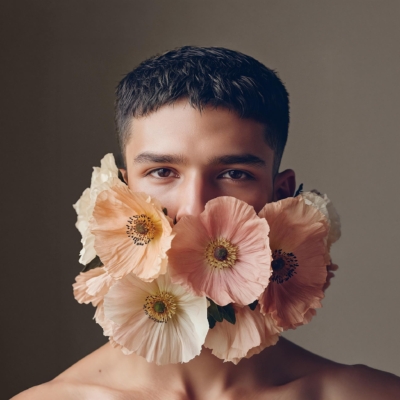
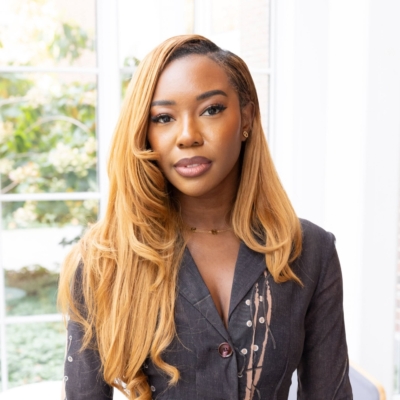
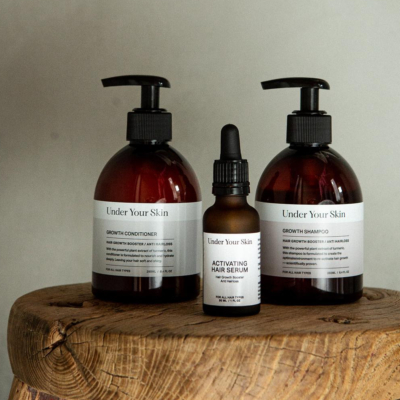
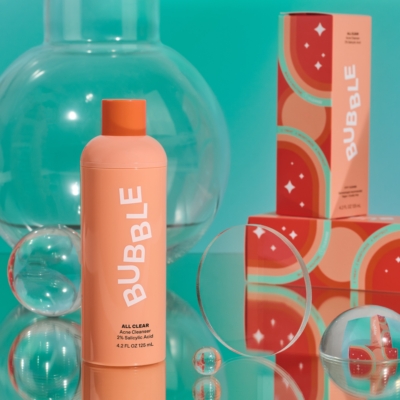
Leave a Reply
You must be logged in to post a comment.